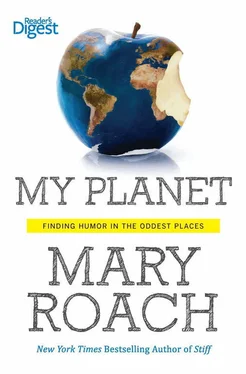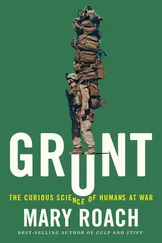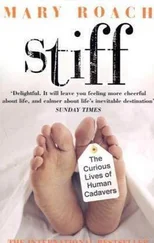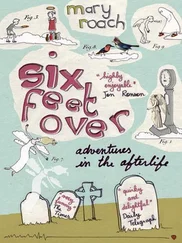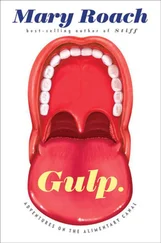Mary Roach
MY PLANET
FINDING HUMOR IN THE ODDEST PLACES
To describe iconic American author Mary Roach is to understand the most genius of Dr. Jekyll and Mr. Hyde complexes. Take science and imbue it with sarcasm. Create a social commentary and add sentimentality. Detail death and layer on wit. Are you chuckling while reading a story about a funeral? Then you’re doing exactly what Roach intended. She lifted the gauze on mortality with Stiff: The Curious Lives of Human Cadavers, questioned life after death in Spook: Science Tackles the Afterlife, experimented with love and the lab for the sake of Bonk: The Curious Coupling of Science and Sex, and dove into disturbing aspects of space travel in Packing for Mars: The Curious Science of Life in the Void.
While her books focus on science and the supernatural, Roach’s column in Reader’s Digest zeroed in on the wonders of the everyday. When “My Planet” first appeared in our July 2002 issue, we knew that we had something special. As an institution that prides itself in handpicking moving stories that will make you smile and see the world a little bit differently, we were thrilled to add a writer with both abilities to our treasure trove of authors. Editors eagerly flipped to Roach’s column after receiving their first-bound copies of the issue and readers, too, took notice. Three years after it’s debut, Roach’s column was runner-up in the humor category of the National Press Club awards. Here, you can read her entire collection in one laugh-out-loud volume.
What you can expect from Roach is a curious curation and condensation of life’s little mishaps—all of which are filigreed with her humor. She details first dates, rants about marital differences, and dissects (as she is wont to do) the stellar process that is getting older (or, as Roach puts it, entering “the Age of Skirted Swimwear”). She breaks down her hypochondriac tendencies and divulges her uncanny desire to make lists for absolutely everything. In lieu of the latter, here are a few more things she’ll tell you about: Accompanying spouses to container outlets (“These stores cast a spell on people”), theories on compromising (“Like any normal couple, we refused to accept each other’s differences and did whatever we could to annoy the other person”), and the trials and tribulations of real estate (“The other day—true story—we saw a listing that said ‘yard, complete with outhouse’”). Serving as the nucleus to these funny anecdotes is her husband, Ed, who makes appearances as both a funny adversary and a worthy teammate.
In a piece called “Best Cheap Fun!” Roach details free ways to get the most out of life. The list (of course it’s a list) includes rooting for the Red Sox at Yankee Stadium and trying to sneak a bottle of water onto a plane, proving once again that humor is worth a potential black eye. Beyond that, Roach prompts us to find wonder in the smaller, simpler moments, leading us to a reader’s paradise of which we’ll never tire.
—The Editors of Reader’s Digest
It was our first date together.The man who was to become my husband, the man I call Ed, got up from the table within minutes of his arrival and excused himself to go wash his hands. I found this adorable. He was like a little raccoon, leaning over the stream to tidy himself before eating. At the same time I found it odd, as it typically would not occur to me to wash my own hands before a meal, unless I’d spent the afternoon coal mining, say, or running an offset printing press.
It was at this same dinner that I made the unfortunate decision to share my philosophy of bath towels, which holds that you needn’t wash them very often because you’re clean when you use them.
We both sensed something of a hygiene gap, and, not wanting to alarm one another, spent our first six months trying to hide our true selves. Ed didn’t tell me how he’d replace the toilet seat whenever he moved into a new place, on the grounds that he “didn’t know who’d been sitting on it.” He said nothing when I used the Designated Countertop Sponge to wash the dishes and the Designated Dishwashing Sponge to clean the bathtub, an act I now know to be tantamount to a bioterror attack. For my part, when I dropped food on the floor I’d throw it away instead of picking it up and eating it, and I’d clean the spot where it landed, albeit with the wrong sponge.
As time went by, we reverted to our true selves and the Hygiene War commenced. More than anything else, it was a war of perception. Ed has crud vision, and I don’t. I don’t notice filth. Ed sees it everywhere. I am reasonably convinced that Ed can actually see bacteria. Like any normal couple, we refused to accept each other’s differences and did whatever we could to annoy the other person. I flossed my teeth in bed and drank from the OJ container. Ed insisted on moving our vitamins out of the bathroom and into the kitchen, where the germs are apparently less savage. He confessed he didn’t like me using his bathrobe because I’d wear it while sitting on the toilet.
“It’s not like it goes in the water,” I protested, though if you counted the sash as part of the robe, this wasn’t strictly true.
“Doesn’t matter,” Ed said. Ed has a theory that anything that touches the toilet, even the top of the closed lid—which I pretty much use as a dressing table in the mornings—is unclean and subject to the sanitary laws of Leviticus.
Things came to a head one evening at a local eatery. When Ed returned to the table after washing his hands, I told him there was no rational reason to do that unless he was planning to handle his food and then leave it sitting out at room temperature for three or four hours before eating it. This reminded me of something I had recently learned in the course of my work, which was not even raccoons wash up before eating . Yes, according to wildlife expert David McCullough, of Wartburg College in Waverly, Iowa, raccoons are not washing, but merely handling their food. They do it even when there’s no water around. “It’s a tactile thing,” he told me. “They have extremely sensitive hands, and one idea is that they are just fulfilling a need to feel food moving around in their paws.”
I told this to Ed. He looked like he wanted to strangle me, and Professor McCullough too. I followed his gaze to the true source of his emotion: the restaurant’s cook. The man had his right hand tucked in his left armpit and was absently massaging the flesh as he read our dinner order and prepared to contaminate Ed’s halibut.
“Big deal,” I said. “He’s wearing a shirt. Maybe he has extremely sensitive hands and it fulfills a need.”
Ed called me insane. I called him abnormal. He was right, I was right. We decided we canceled each other out and that together we made one sane, normal entity, at least compared to, I don’t know, raccoons. Then Ed did something very touching. He reached over and kissed my hand, which we both knew hadn’t been washed since the night before.
There are three kinds of peoplein this world: 1) People who make lists, 2) People who don’t make lists, and 3) People who carve tiny Nativity scenes out of pecan hulls. I’m sorry, there isn’t really a third category; it’s just that a workable list needs a minimum of three items, I feel. I am, as you might have guessed, a person who makes lists: daily To Do lists, long-term To Do lists, shopping lists, packing lists. I am married to a man whose idea of a list is a corner torn off a newspaper page, covered with words too hastily written to later decipher, and soon misplaced or dropped on the floor. Every now and then I’ll discover one of Ed’s lists in some forgotten corner of the house: Rescrangen polfiter, it will say. Pick up grellion. Bregoo! underlined twice.
Читать дальше
